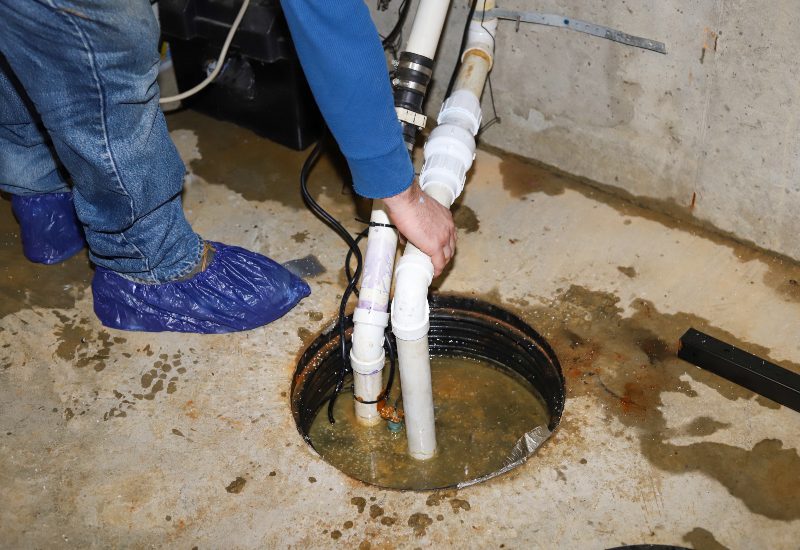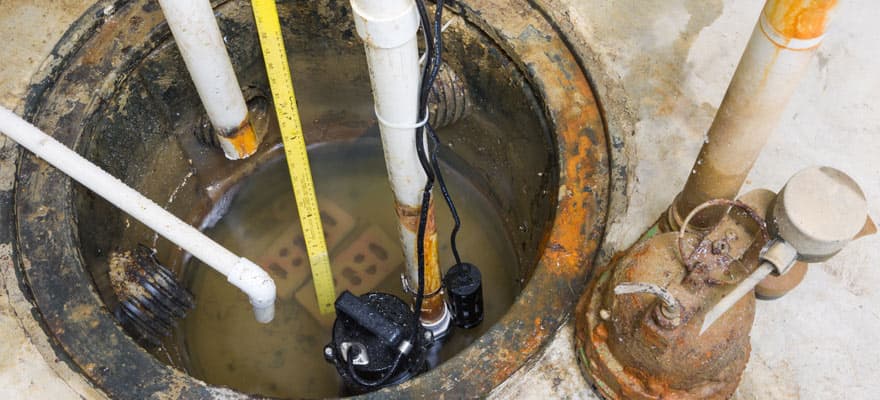Aggressive Water Treatment Actions: Buying Long-Term Water Top Quality
Wiki Article
Understanding the Key Parts of Effective Water Filtering Solutions

Importance of Water Purification Equipment
Water filtering systems play an important role in ensuring accessibility to safe and tidy drinking water by effectively getting rid of pollutants and pollutants. These systems are necessary in attending to the growing concerns over water high quality and the potential wellness dangers associated with eating contaminated water. By making use of different filtration devices such as reverse osmosis, triggered carbon, and UV sterilization, water filtering systems can efficiently remove hazardous materials like germs, infections, heavy steels, and chemicals from the supply of water.Moreover, water purification systems help to enhance the taste and odor of water by removing chlorine, sediments, and various other toxins that can affect its top quality. Well Pump Replacement. This enhancement in water top quality not only makes it much more tasty but likewise urges individuals to consume an ample amount of water daily, promoting much better hydration and total health and wellness
Types of Filtering Parts

Physical filters are designed to physically stress out contaminations from the water. These filters can be made of materials like ceramic, carbon, and even sand, and they function by capturing fragments larger than the filter's pores as water passes through.
Chemical filters utilize numerous chemical procedures to remove contaminants from the water. Examples include triggered carbon filters, which adsorb contaminations, and turn around osmosis membrane layers, which use pressure to separate contaminants from the water.
Organic filters use living microorganisms like algae or bacteria to break down organic matter and contaminants in the water. These filters are typically utilized in wastewater therapy plants or all-natural water filtration systems.
Recognizing the various kinds of filtering elements is vital for selecting the most suitable water filtering system for particular purification requirements.
Function of Sediment Filters
Debris filters play an essential role in you can find out more water filtration systems by effectively capturing strong fragments put on hold in the water. These filters are normally the very first line of defense in a filtration system, removing bigger fragments such as sand, silt, dirt, and rust prior to the water relocates via finer purification stages. By trapping these debris, the filters stop them from getting to downstream components, thus expanding the life expectancy and effectiveness of the entire system.The feature of debris filters is important in maintaining water top quality and shielding sensitive equipment from damages triggered by debris. In addition, by eliminating visible fragments, sediment filters boost the clearness and taste of the water. Regularly changing or cleaning up sediment filters is vital to make sure optimal efficiency. Overlooking this upkeep can result in clogging, minimized water flow, and jeopardized filtration efficiency. In general, debris filters are important components that index contribute significantly to the efficiency of water purification systems.
Role of Turned On Carbon Filters
Playing an important function in water filtering systems, triggered carbon filters are critical in getting rid of contaminations and contaminants from the water supply. As water passes through the filter, the activated carbon holds and attracts onto the impurities, ensuring that the water that comes out on the other side is cleaner and more secure for intake.Turned on carbon filters are very reliable at enhancing the taste and odor of water by reducing chemicals that can affect its quality. They are also capable of getting rid of particular hefty metals like lead and mercury. Additionally, these filters can help protect against the build-up of germs and algae in water, additional enhancing its total top quality. Because of their adaptability and dependability, activated carbon filters are a vital part in making sure that water is purified to the highest possible criteria before getting to customers.
Recognizing Reverse Osmosis Systems
Reverse osmosis systems are sophisticated water filtration systems that use an advanced procedure to eliminate impurities and impurities from alcohol consumption water. These systems work by using stress to the water, requiring it via a semi-permeable membrane. This membrane layer acts as an obstacle, enabling just pure water particles to pass through, while blocking bigger molecules such as minerals, chemicals, and other contaminations. Because of this, the water that comes out beyond is considerably cleaner and more secure for consumption.One secret advantage of reverse osmosis systems is their capacity to remove a vast array of contaminants, including heavy steels, liquified solids, viruses, and bacteria. This makes them extremely reliable in boosting the total quality and safety of drinking water. Additionally, reverse osmosis systems are relatively low-maintenance and can be installed under the sink or in a central filtering system, offering practical access to clean great site water throughout the home. Generally, recognizing just how reverse osmosis systems function can aid people make notified decisions about their water filtration needs.
Final Thought
In conclusion, reliable water filtering systems are crucial for making certain tidy and safe alcohol consumption water. By comprehending the function and function of each component, people can make informed choices when selecting a water filtering system.Water filtration systems play a vital role in making certain access to tidy and safe drinking water by effectively eliminating impurities and pollutants. By using numerous filtration systems such as reverse osmosis, turned on carbon, and UV sterilization, water filtering systems can successfully eliminate unsafe substances like germs, viruses, hefty steels, and chemicals from the water supply.
Sediment filters play a vital duty in water filtration systems by successfully recording strong particles suspended in the water (Water Softeners).Playing a vital duty in water filtration systems, activated carbon filters are critical in eliminating impurities and pollutants from the water supply.Reverse osmosis systems are innovative water purification systems that use a sophisticated process to remove contaminants and impurities from drinking water
Report this wiki page